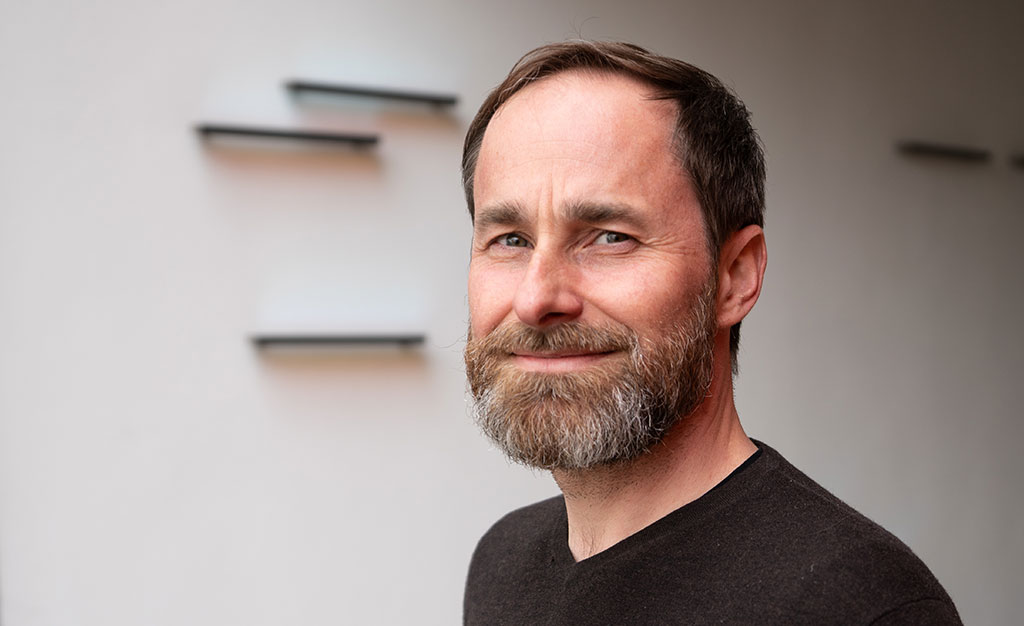Services
Industries
About us

 Markus Turber
Markus Turber

27.03.2020
Uncharted Territory
Time Out
Serious illnesses mark the turning point after which we throw the familiar overboard, set new priorities and boldly reach for the second chance. The crisis is forcing us to make fundamental changes to our previous actions.
During the acute phase of the Covid-19 pandemic, civil society and politics show how this can be done. These signals are positive and encouraging. We see consensus and solidarity among the majority of people. An impressive amount of energy and creativity is released, in Hackathons as well as in the improvised conversion of production to urgently needed medical products. A lot of people want to support. The crisis also shows the value of transparency: The international exchange on infection numbers is valuable for deciding on appropriate measures.
All this happens beyond micro-optimization! We have switched to fundamental questions. On the one hand, we are aware of how painful and existence-threatening the compulsory break is for many companies. For many people there, this is by no means the case. They take up the challenge and work on solutions out of this deadlocked situation. We are helping these teams!
What can we do now?
Transparency and foresight
A good overview and precise knowledge of the interrelationships and interactions of a system improve the basis for decision-making in daily business as well as in extreme situations. As a basis for this, we create a comprehensive modeling of the processes and dependencies in the company. With the model we simulate scenarios and identify the best solution. Weaknesses as well as strengths become visible and the effects of decisions can be better assessed. On this basis, companies can act decisively. Intuity supports executives and managers so that your company quickly finds its bearings and becomes capable of action.
Narratives for the post-Corona world
Whoever wants to return to the old after the crisis will have to pay a high price in some industries. Whoever is able to recognize the signs of the times, however, can create new markets. Future is made – Those who want or need to take the lead need new and better narratives today. We experience how a virus brings our seemingly perfect system to a standstill with one blow. Will everything continue as before and if so, at what cost? Or is there space for something new?
Together with Intuity, you work on your narratives for the time after the crisis. In which society do your customers want to live and what new priorities arise from this? What does this mean for your company? How do you deal with freed capacities within and outside your own company? There are guard rails in this discourse. Two essential ones are:
Limits of acceptance: A reorganization on this scale must not occur regularly without endangering social stability. What creates meaning now? What can you do to cultivate solidarity and consensus on values? For after the Corona crisis, not only public funding in the billions is waiting, but also climate catastrophe, a multipolar world and overheated financial markets.
Limits to adaptability: Companies cannot reinvent themselves as often as they like without getting into existential difficulties. How can companies be made earthquake-proof?
„Covid-19 has mercilessly exposed our weaknesses. If we are in our right mind, we will now direct our actions fundamentally and according to better knowledge.”
Creating resilient structures
In principle, we know how to do it. We have redundant systems for power supply, data storage or communication. What can be achieved there through a solid technical setup is much more difficult at the process and organizational level, especially in highly distributed systems with many dependencies. But we have now learned that systems that are optimized for efficiency on one side quickly become incapable of action. We must establish resilient structures. Depending on the context, this requires different forms: from the creation of redundancies, to the compensation of default risks, to the radical defragmentation of value chains.
Priorities
A comprehensive stocktaking must be carried out quickly, because we must act so that fundamental processes get back on track. We are happy to help with this.
After the reboot we can give ourselves a new, robust operating system and drop ballast. Let's see this crisis as an opportunity for reorientation. What are really meaningful services? How can we operate more sustainably? We have finally reached global consensus on the threat of climate change and much has been set in motion. We must now hold on to this momentum all the more and not be set back by years. We will draw courage from the reset to cut off old habits and make a leap in development. Within the framework of established business, we have internalized methods such as design thinking, business model innovation and start-up culture for years – let's use them to really get something new going instead of just optimizing on a small scale. As an transdisciplinary team, we recognize opportunities and connections that others may miss.
We work transdisciplinary and are owner-managed for almost 20 years. We are well prepared for wild times – you can rely on us.
Further reading: F. J. Radermacher describes in his paper A Better Governance for a Better Future, how tipping points can help us to find a sustainable economic system.